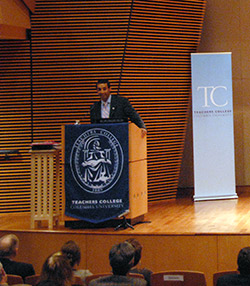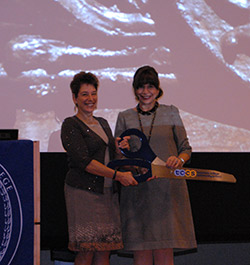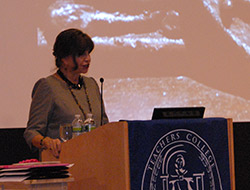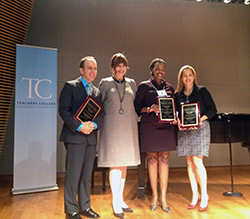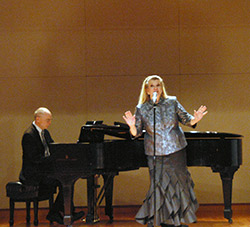Filed Under > TC Community
Advancing TC's Legacy for Generations to Come
In her 2012 State of the College address, President Susan Fuhrman calls for TC to honor its past while transforming the future
Despite a tough economic climate and the tight job market facing graduates of many other institutions, Teachers College is enjoying “a tremendous time of opportunity because of who we are, what we and where we are going,” President Susan Fuhrman told listeners at her State of the College address yesterday.
This fall the College once again welcomed an incoming class that set new records for size, selectivity and diversity, with 19 percent of students coming from 52 countries outside the United States, and with 38 percent of U.S. incoming student self-identifying as students of color. TC also is attracting more financial support, with commitments in fiscal year 2012 totaling $48.2 million – an 83 percent increase over the prior year. And just recently, the College received major new gifts from Trustees Laurie Tisch (half to fund a new center on nutrition education and policy, and half a challenge gift to other trustees to fund the college’s capital priorities); Sue Ann Weinberg (to support TC’s program in History and Education; and Marla Schaefer (to support the International Center for Cooperation and Conflict Resolution). Another gift, from the JP Morgan Chase Foundation, will support TC’s Partnership Schools.
“As we approach the celebration of our 125th anniversary next year, this is our moment to reflect on our role as the world’s best graduate education school – and to reaffirm our goal to honor and advance TC’s legacy for generations to come,” Fuhrman said.
2012 State of the College
